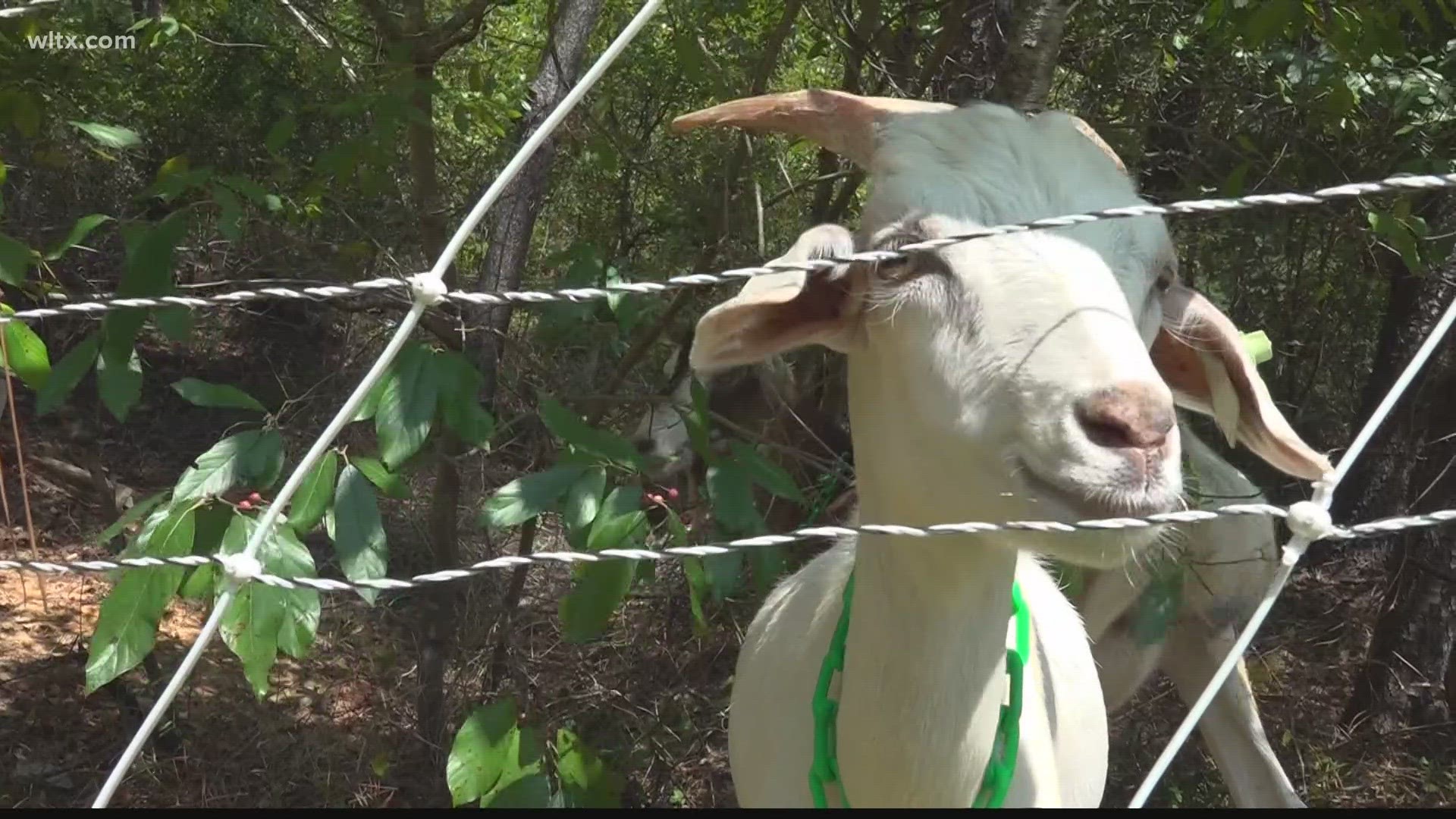COLUMBIA, S.C. — "Goatscaping" might be coming to Columbia. City Council is discussing changes to an ordinance that prohibits free-range livestock within city limits.
"They don't call in sick, they don't complain, they show up on time, and they love doing it. And nature has designed them to do this," Jacob Porter said, smiling as he talked about his goats. "Goats, I mean, for thousands of years, they've been doing this. So it's not anything new; we're just doing it now."
Porter has owned Green Goat Land Management since 2019, using goats to clear vegetation.
"It's a non-chemical green way to do it, and it doesn't involve … It's a carbon neutral way," Porter said. "The goats clear property - especially invasive species: kudzu, poison oak, poison ivy."
Right now, they're technically not allowed to "work" within Columbia city limits due to the 1998 Code of Ordinances of the City of Columbia, South Carolina, Chapter 4, Animals, Article III, which prohibits free-ranging livestock. In Tuesday's meeting, the Columbia City Council is discussing proposed revisions to the code.
"It has some really cool implications for the city, and it certainly should be something that we consider in terms of, you know, becoming more eco-friendly," at-large Councilwoman Aditi Bussells said.
Bussells said changing the ordinance could allow "goatscaping" as an alternative to herbicides.
"When you think about the economic and environmental impacts of that, it's a pretty tried and true practice," Bussells said.
"If you use a lot of herbicides, you'll kill pollinators," Porter said. "And if you've got no bees, you'll be naked, hungry and no alcohol within four years."
Additionally, Porter said the chemicals can get into the water supply. Instead, he visits customers to set up a temporary electric fence and leaves goats to eat the vegetation for a couple of weeks. People like Sylvia Jenkins with the Burton Heights (Standish Acres) neighborhood, however, said they don't want goats causing issues in the community.
"Would you want to wake up with the stench or livestock in your neighborhood or next to you?" Jenkins asked the council during the meeting. "I'm sure the answer would be no."
The council is expected to refer this discussion to a committee meeting, which will brainstorm ideas in the coming weeks.
Porter said he has a verbal agreement with the city for goatscaping, but this change in ordinance would credibly establish the practice.
"What we're looking at is a permit program and there would be specific conditions, right? Like the duration of time, the number of animals, the location," Bussells said. "Really keeping it specific to allow for it to be a practice that's used, but also doesn't necessarily cause more problems than intended. And I don't anticipate even those that have requested this change, that that would be an issue; but every time you're making a policy change, I always have to think more broad about the potential implications."

